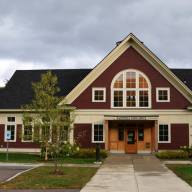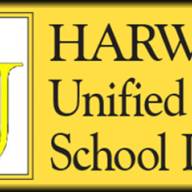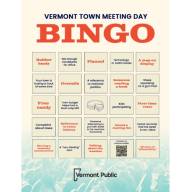I share Sal Spinosa’s dismay regarding our property taxes (from his letter in The Valley Reporter last week). Between FY 2023 and 2026, my overall property tax burden increased over 25%. This year’s increase was modest, only 2.5%, but the state did all sorts of contortions to manage the increase to that level. I shouldn’t have to say this, but a 25% property tax increase every three years is in no way sustainable. I’d very much like to meet the legislators in Montpelier that would argue that it is. The Vermont tax situation is widely known outside the state, with one of the country’s most tax-friendly states just across the river. Our current tax situation is depressing property values and it is a major deterrent to people with means moving here.
I would not, however, blame our select boards for the situation (although as elected politicians they should be doing all the lobbying they can in Montpelier to try and mitigate this horrendous situation). For FY 2023 to 2026, the education tax rate component of my property taxes increased over 30% while the municipal and local agreement rate increased only 9.5%. Nearly 80% of my property taxes have gone to fund statewide education for that period.
Aside from just the unsustainable overall cost, I have two other problems. First, we are funding education systems that are not local to the Mad River Valley and that have had no accountability to us. We don’t know if these other education systems are using the funds we send them wisely or not. In a macro-sense, the answer is clearly not. Our state level student population is declining, educational outcomes are also declining and per pupil costs keep going up.
The second issue is more subtle, but I believe real. To try and keep our property taxes “reasonable” our select boards have tried to keep local increases modest. My concern is that the 30% increases in the educational component is “crowding out” the ability to tax locally. For our communities, this is a double whammy. A significant part of the property tax we pay goes out of The Valley and gets used “God knows where,” and our local towns are in austerity mode, without the capacity to fund initiatives that they probably should.
I am eagerly looking forward to seeing how the Legislature’s recent education reforms will impact the property tax picture. Personally, I work backwards from what people can afford to pay. In my humble opinion, a 3 or 4% overall property tax increase a year is acceptable. I also think that at least 70% of that should go to local needs, with no more than 30% going to fund statewide education. We are nowhere close to that right now. Should the reforms not move us significantly and quickly towards that goal, I advocate repealing Act 60 and returning all property tax to local control. Let every community fund its own education system, as well as local needs, until this gets figured out. I recognize this presents all sorts of equity and fairness issues that the original legislation was intended to address. But we also have to consider affordability and local need, for existing state residents and anyone we would like to attract to live here to grow our economy.
Mooney lives in Waitsfield.












